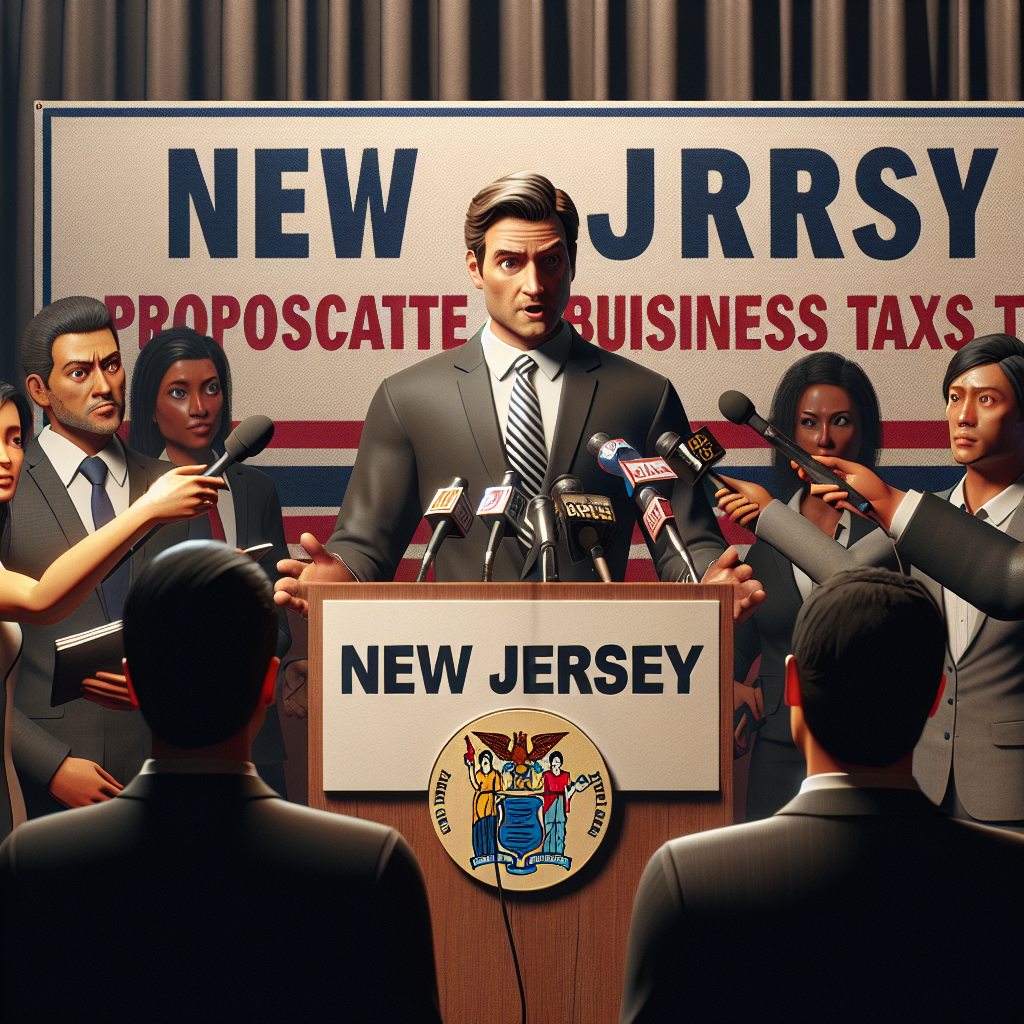Governor Philip D. Murphy’s Budget Address to Include Restoration of Highest Corporate Business Tax Rate
In a surprising turn of events, Governor Philip D. Murphy of New Jersey is set to propose the reinstatement of a corporate business tax during his annual budget address. This comes just a year after the tax was allowed to expire, with the governor touting it as a victory for entrepreneurs and job creation. The proposed tax rate of 11.5 percent would be the highest in the nation, but would only apply to companies with profits exceeding $10 million per year. This move is expected to be presented as a permanent solution to the financial struggles faced by the state’s transit system.
A Promise Broken and a New Direction
Last year, Governor Murphy celebrated the expiration of the corporate business tax, emphasizing the benefits it would bring to businesses and consumers. However, the state’s financial landscape has changed, leading the governor to reverse his stance. The proposed tax rate of 11.5 percent is significantly higher than the previous rate, but the threshold for application has also been raised from $1 million to $10 million in annual profits. This shift in approach reflects the governor’s commitment to addressing the financial challenges faced by New Jersey’s transit system.
A Dire Financial Condition
The decision to reinstate the corporate business tax is driven by the urgent need to address the dire financial condition of New Jersey’s statewide transit system. Over the years, the transit system has struggled with funding shortages, resulting in service disruptions and deteriorating infrastructure. Governor Murphy sees the restoration of the tax as a crucial step towards ensuring the stability and sustainability of the transit system. By targeting the most profitable companies, the state aims to generate the necessary revenue to invest in infrastructure improvements and expand services.
The Highest Corporate Business Tax Rate in the Nation
If Governor Murphy’s proposal is approved, New Jersey would have the highest corporate business tax rate in the nation. Critics argue that such a high tax rate could discourage businesses from operating in the state and hinder economic growth. However, supporters of the tax believe that it is a necessary measure to ensure that profitable companies contribute their fair share towards public services and infrastructure. The increased threshold of $10 million in annual profits aims to alleviate the burden on smaller businesses while still generating substantial revenue from larger corporations.
Balancing Competitiveness and Public Interest
The debate surrounding the proposed corporate business tax highlights the delicate balance between fostering a competitive business environment and addressing public needs. Governor Murphy’s decision to reinstate the tax reflects his belief that corporations should play a significant role in supporting the state’s infrastructure and services. The tax revenue generated will be crucial in improving the transit system, which in turn will benefit businesses and residents alike. Finding the right equilibrium between corporate interests and public welfare remains a challenge, but Governor Murphy’s proposal seeks to strike a balance that benefits both.
Governor Philip D. Murphy’s unexpected proposal to reinstate the corporate business tax in New Jersey has sparked a heated debate. The decision to implement the highest tax rate in the nation for the state’s most profitable companies is seen by some as a necessary step towards addressing the dire financial condition of the transit system. Critics, however, express concerns about the potential impact on business competitiveness and economic growth. As the proposal makes its way through the legislative process, the outcome will have far-reaching implications for the state’s economy and the future of its transit system. Striking the right balance between corporate interests and public welfare will be crucial in shaping the final decision.

